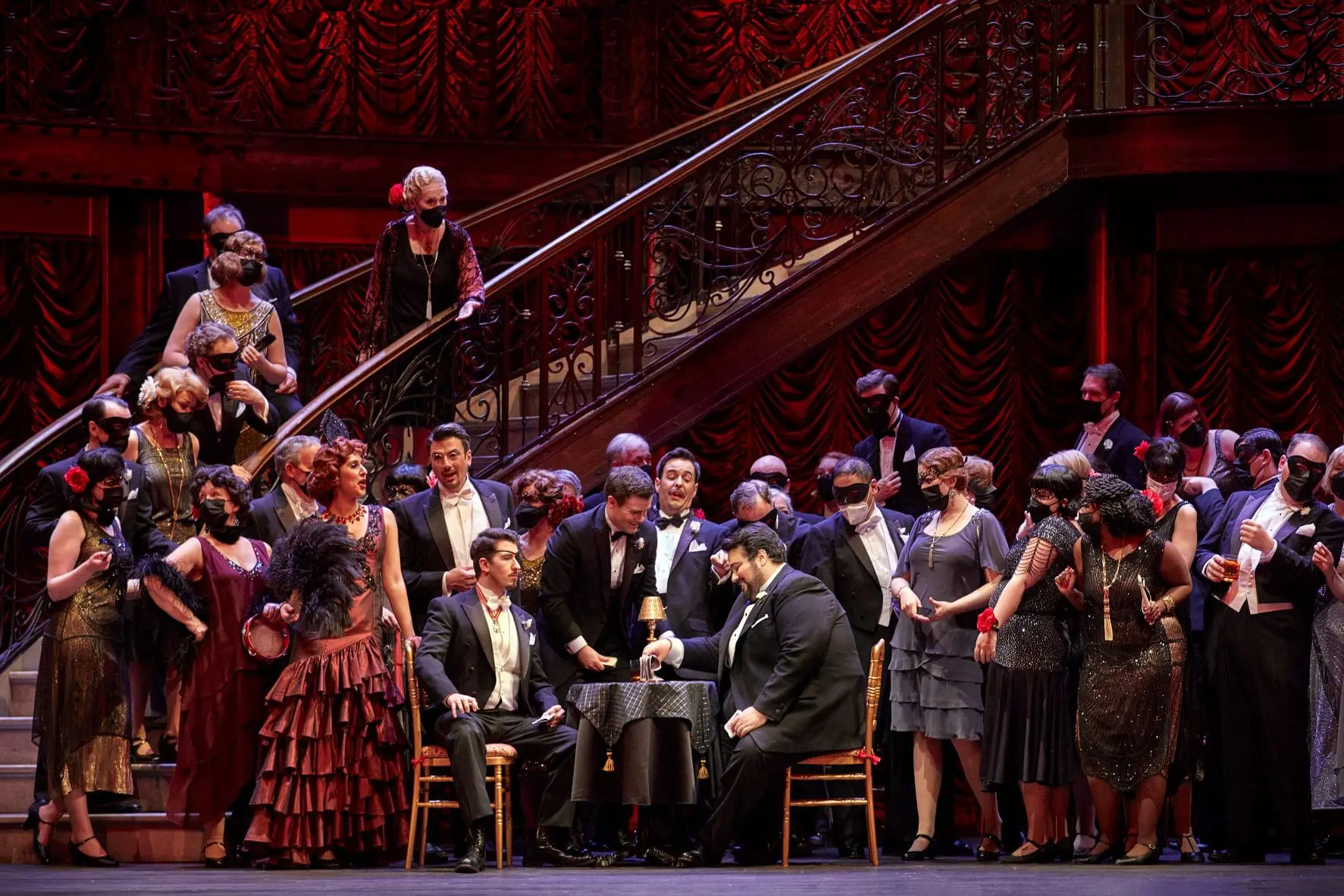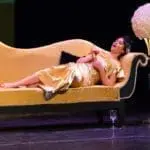When La Traviata was first performed in Venice in 1853 it was a major disappointment. This was the age of Wagner and Verdi and big operatic drama. Verdi had disregarded the moral and artistic convention of his time, as well as the expectations of his audience; instead of focusing on biblical and historical dramas he placed a prostitute, rather than a noble aristocrat or heroic warrior, at the center of his musically glorious adaptation of La Dame aux Camélias by Alexandre Dumas the younger.
Opera critics, the press and vocal bourgeois conservatives were appalled that Verdi would give center stage to so dissolute a character, fearing the opera could promote immorality. Luckily, these voices were defeated by the immense ongoing and irrepressible success of this musical masterpiece.
However, even for a twenty first century audience, La Traviata presents ethical challenges: misogyny and hypocrisy. Today it is not Violetta’s past that is shameful – it is the uncompromising social rigidity and sense of entitlement of Alfredo and his father. Cultural and social changes evolved in the late nineteenth and early twentieth centuries, that made the sacrifices of a generous, tormented Violetta admirable. Verdi presented her as one struggling within herself, beyond the restricted conventions of her milieu, her inner conflict between love and freedom defiantly expressed in the aria “Sempre Libera” in Act 1 as she tries to resist Alfredo and remain free.
In the Maritime Concert Opera (MCO) performance, Suzanne Rigden was a beautiful Violetta, clear, consistent, and totally convincing. Her coloratura was effortless and light. She was well-matched by a very attractive and seductive Alfredo, whose rich tenor was irresistible and would melt most hearts. Despite the acting constraints of concert opera, these two voices soared off the stage in exquisite musicality.
In Act 2, another huge voice enters the stage. Giorgio Germont, Alfredo’s father, as portrayed by Andrew Tees. He is the character who shatters the idyllic romance and makes the most contemptible demands of Violetta, effectively condemning her to death. Had it not been for his magnificent, powerful baritone, he would be intolerable. But Andrew Tees managed to make him almost forgivable, a man wholly trapped by the standards of his society but with a great range of emotional expression.
The entire cast and the chorus performed a lively, upbeat Drinking Song, in Act I, setting up the perfect foil for the romantic declaration of eternal love by Alfredo. La Traviata does not offer much opportunity for other stars to emerge, there were glimpses of some excellent voices in minor roles: Andrew Pelrine, as Gaston, Sam Ernst in several roles, and Nina Scott-Stoddart as both Flora and chorus conductor.
The talent of pianist Tara Scott to provide an entire orchestral sound to the production is, as always, outstanding. This performance was a major triumph.
Opera Canada depends on the generous contributions of its supporters to bring readers outstanding, in-depth coverage of opera in Canada and beyond. Please consider subscribing or donating today.















